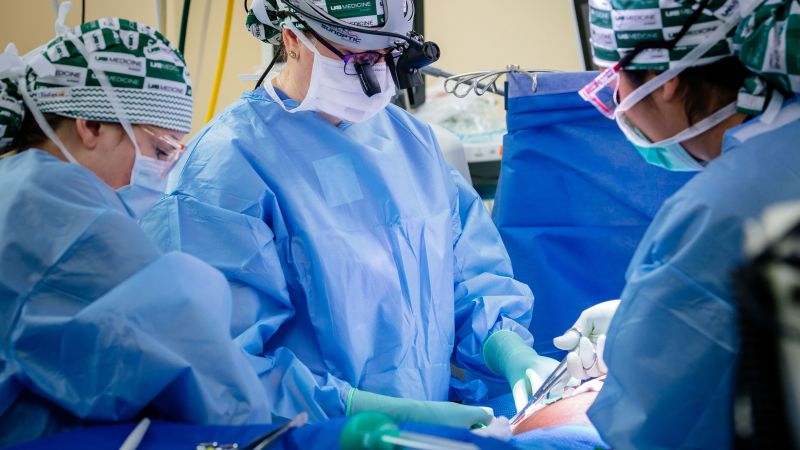
Unlocking the Potential of Xenotransplantation: A Promising Solution to the Organ Shortage Crisis

Scientists are making significant strides in understanding and implementing cross-species organ transplantation, offering hope in addressing the critical shortage of organs for human transplants. Recent research has demonstrated promising results in xenotransplantation, bringing us closer to potential human trials and a revolutionary shift in organ donation.
The Promise of Xenotransplantation
The field of organ transplantation has long been plagued by a persistent scarcity of donor organs, leading to a growing number of individuals on transplant waiting lists. In light of this pressing issue, scientists have embarked on a groundbreaking journey to explore the potential of xenotransplantation, a process that involves the transplantation of organs from one species to another. This innovative approach holds the promise of alleviating the critical shortage of organs and saving countless lives through its potential to provide a renewable source of donor organs.
The recent study, published in the Journal of Clinical Investigation, has shed light on the progress made in xenotransplantation, marking a significant step forward in the quest for viable alternatives to human-to-human organ donations. With over 100,000 individuals in the US alone waiting for organ transplants, the need for innovative solutions has never been more urgent. The potential of xenotransplantation to offer an abundant supply of donor organs from genetically modified pigs presents a ray of hope in the realm of organ donation and transplantation.
Advancements in Xenotransplantation Research
The pioneering research conducted at the University of Alabama-Birmingham's Marnix E. Heersink School of Medicine has been instrumental in advancing our understanding of xenotransplantation. In a groundbreaking endeavor, doctors at the esteemed institution successfully transplanted genetically modified pig kidneys into three brain-dead individuals, showcasing the viability of this innovative approach. Notably, the transplantation process utilized FDA-approved drugs, mirroring the protocols employed in human-to-human organ donations.
Jeffrey Stern, MD, left, and Robert Montgomery, MD, DPhil, prepare to implant a genetically engineered pig kidney into the recipient's abdomen.
One of the key challenges in organ transplantation, whether from humans or animals, lies in preventing the recipient's immune system from rejecting the transplanted organ. The study demonstrated the effectiveness of immune-suppressing drugs, coupled with an FDA-approved therapy known as eculizumab, in enhancing the success of pig kidney transplants. These findings have paved the way for potential human trials, offering a glimmer of hope for individuals awaiting life-saving organ transplants.
The Path Ahead: Implications and Future Prospects
As the realm of xenotransplantation continues to unfold, the prospect of ushering in a new era in organ donation and transplantation looms on the horizon. The successful demonstration of pig kidney transplants using established medications holds significant implications for the progression of xenotransplantation into FDA-approved human trials. Dr. Jayme Locke, a prominent figure in the field of transplantation, emphasized the importance of incremental changes and the need to simplify the process to ensure its widespread applicability.
From left:: Sandi Minor, RN, Registered Nurse, Perioperative Services; Dr. Jayme Locke, MD, , Director, UAB Division of Transplantation; and Natalie Budd, RN, Registered Nurse, Perioperative Services, biopsy a genetically modified pig kidney as part of UAB's 2023 JAMA Surgery study.
The latest research findings, while demonstrated in a limited cohort, have garnered praise for their innovative and progressive nature. Dr. Sheri Krams, a distinguished transplant surgeon, acknowledged the incremental nature of the advancements while underscoring their significance in the realm of organ transplantation. The potential of xenotransplantation to address the critical shortage of donor organs has been lauded by Dr. Mandy Ford, scientific director of the Emory Transplant Center, who recognized the study's contribution to advancing the clinical reality of xenotransplantation.








